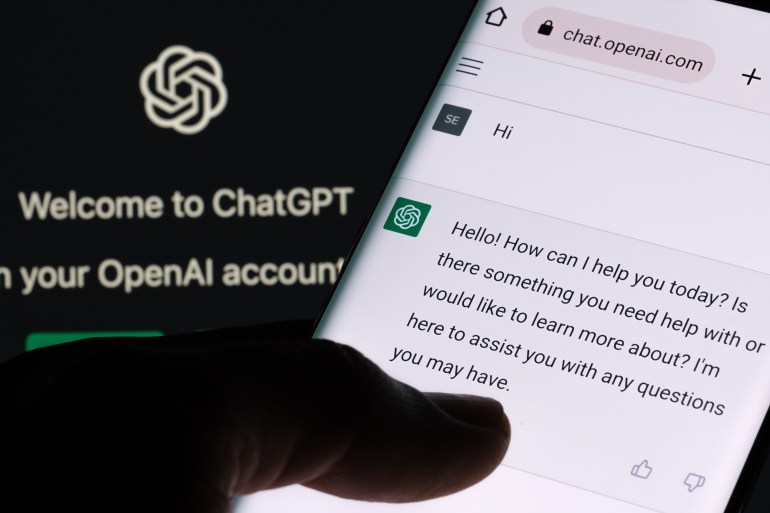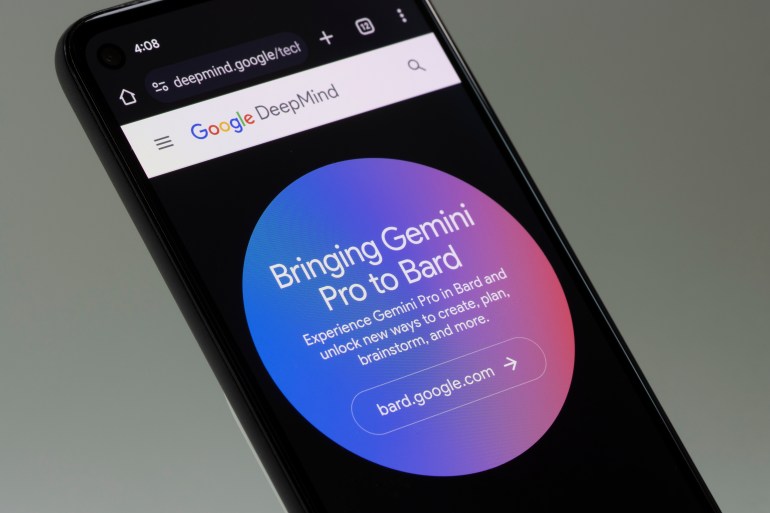SearchGPT: How will Internet search change after OpenAI enters the race? | Technology
After months of speculation about the company's ambitions in the field of Internet search, OpenAI has revealed its new artificial intelligence search engine, Search GPT.SearchGPT), which is currently a prototype for an online search engine that could help the company grab a slice of the profits of search giant Google.
The search engine is based on the GPT-4 model, and OpenAI said the new service will help users find what they are looking for faster and easier using generative AI, which collects website links and answers users' queries in a conversational manner.
The company said in a blog post that it is “testing SearchGPT, a tentative prototype of new AI-powered search features that provide fast, timely answers with trusted, clear, and relevant sources.”
We think there is room to make search much better than it is today.
We are launching a new prototype called SearchGPT: https://t.co/A28Y03X1So
We will learn from the prototype, make it better, and then integrate the tech into ChatGPT to make it real-time and maximally helpful.
— Sam Altman (@sama) July 25, 2024
Search GPT
ChatGPT got the ability to search the internet late last year, but there’s a difference between a chatbot that can use live information and a full-fledged AI search engine, like Perplexity and the AI Overviews service Google added to its search engine in May.
SearchGPT combines the capabilities of a chatbot with a list of links to websites, making it more conversational than its current competitors. The search process begins with a simple question, and the user is then given some basic information, along with a selection of website links, as well as the ability to ask a follow-up question.
In the examples the company has shown, the interface is simple and doesn’t necessarily show AI-written paragraphs for every search, which could help the chatbot avoid the pitfalls of Google’s latest feature. The service is user-directed, and users can ask for longer, more detailed answers if they want.
Users will also be able to browse a sidebar that contains additional site links, giving them a more natural search experience. The Verge also reported that the company will add a feature called “visual answers,” which is supposed to be similar to Google Image Search but with artificial intelligence.

The search engine “Search GPT” may in the future be integrated with the chatbot “Chat GPT”, which is currently very popular among users. In addition to the ability to search the web comprehensively, the new search engine will benefit from the content and information of publishing platforms that have made deals with OpenAI that allow them to access the content they publish.
OpenAI spokeswoman Kayla Wood confirmed that the company has made the new engine available to some unnamed partners and publishers, and has improved several aspects of the search engine based on their feedback.
The company said it will offer the tool to a limited group of users to give their opinions and feedback, and you can try reserving a seat on that list by clicking on “Join the Waiting List” in Official Page For this new service.
Overcoming hallucinations
After OpenAI first introduced ChatGPT in November 2022, early adopters saw the chatbot's ability to search and summarize information from the web as a potential alternative to traditional online search.
However, the shortcomings of large language models make chatbots less effective in the field of internet search. One of the main concerns and fears about this new feature is the continued possibility of AI model “hallucination,” which occurs when the model produces completely invented answers that have no basis in the data on which it was trained.
Microsoft tried to overcome these problems in its version of the Bing engine, but it did not succeed significantly, and the giant company was unable to dislodge Google's search engine from its dominance of this market.
The same issue also surfaced after testing the new feature in Google Search, and criticism mounted after users of the feature reported illogical or inaccurate results among the answers the model gave users. Social media users shared a variety of screenshots showing the new AI feature giving incorrect and controversial answers.
This is partly because the highly sophisticated models that power chatbots are trained to predict language patterns, and not trained to track, index, and surface information on the web like traditional search engine algorithms.

OpenAI may use a generative AI approach called “SearchGPT” in its SearchGPT service.Enhanced feedback generation“, a standard for the AI search industry designed to reduce the rate of hallucination in chatbot answers. Using this approach, the AI search tool points to reliable sources of information, such as popular news networks, while generating its results and linking them to the source from which it got the information.
Artificial Intelligence Search
Microsoft, OpenAI’s largest investor, was among the first to launch a generative AI search engine, when it released an AI-powered version of its Bing search engine in 2023 that was based on large language models developed by OpenAI. Microsoft has since renamed the AI search experience “Copilot.”
There are other experiments in this market, such as AI search engines from Perplexity and You. Google also announced at its annual developer conference that it will begin rolling out AI Briefings, formerly known as the Search Generative Experience (SGE), to users in the US and soon worldwide within its most popular search engine.
The feature offersArtificial Intelligence SummariesNew to Google Search for users are AI-generated answers to search queries that are suitable for providing summary answers. The model collects different information from websites on the Internet, and displays it in a summary way that gives the user the answer he is looking for without having to click on the website link, or even know the titles of the articles that the AI used as sources.
The company said that AI summaries will appear in the first results of a Google search page when the search query is complex, and this will be determined by Google's search systems, meaning that it will choose when exactly those summaries will appear on users' requests. These results, which rely on AI, are more expensive for Google than traditional search results because generative AI models consume much more computing resources.
Despite the huge success of ChatGPT, OpenAI is looking for new revenue streams as it pours huge sums into training larger AI models. A recent report from the website estimates thatThe InformationThe company could lose $5 billion this year due to the costs of hiring more employees, launching new business services offerings, and training more powerful AI models.
There are huge revenue streams in the online search space, and Google is the undisputed leader, accounting for more than 90% of the online search engine market. Google’s biggest revenue comes from online search, with the company generating $175 billion in search and related advertising revenue last year, up from $162.45 billion in 2022, according to the company’s annual report.
OpenAI’s entry into the world of internet search could help it confront its main competitor, Google. Google currently owns the Gemini chatbot, which is the biggest competitor to ChatGPT at the moment. Google has also intensified its efforts to integrate these technologies into commercial services, including its office software and the Android smartphone operating system, in addition to internet search services.
